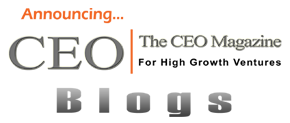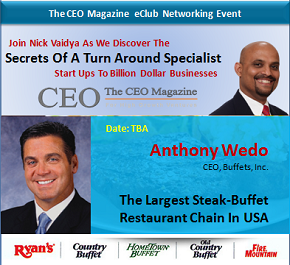You are here
- Guest Blogger |
- Management |
- Thu, 02/04/2016 - 19:25

Charles E. Knadler, CEO, EnerBank USA
Innovation is great for businesses, but it’s no good if the company neglects to execute on the fundamentals.
Concentrating on the fundamentals in a bull market on Wall Street can help companies weather the storm and even thrive in a bear market. Companies that ignore the fundamentals should be prepared to take a hit during a recession, sometimes well beyond the ones experienced by their competitors. The fundamentals apply to everything from governance and management all the way to individual employee tasks.
Here are some of the key fundamental approaches we emphasize to our customers – home improvement contractors - and partners that have helped us succeed and grow, even during the greatest recession of our lifetime.
1. Develop your sales processes in good times and bad
When times are good, it can be a challenge to get our customers to present a choice of loan options to every customer. During the recession, however, these same contractors paid closer attention to sales processes because sales leads were down and they needed to close as many as possible.
A recession will quickly teach business owners why implementing a formal sales process is so important. When contractor sales representatives consistently follow an approved sales process and offer a choice of payment options to every customer, their average job size and close rates increase significantly.
2. Don’t pre-judge your customers
Some contractors have a bad habit of pre-judging a potential customer. They might call on an individual, see a BMW in the driveway and think, “They can afford it, so I won’t bother offering a choice of payment options.”
Conversely, a contractor might notice a potential customer’s 1980 pickup parked in the driveway and think “They can’t afford much, so I’ll make this pitch short.” In reality, the family with the 35-year-old-truck could be the “millionaire next door,” whereas the customer with the BMW could be living paycheck to paycheck.
Be consistent. Offer every customer a choice of payment options every time. Don’t limit their choices and potentially leave the sale on the “kitchen table”.
3. Stick to your guns on risk assessment
When evaluating opportunities, it’s important to determine if each one is consistent with your company’s risk profile and tolerance. Sometimes having a conservative risk appetite can seem to be inhibiting, but in the long run it often pays off.
The home improvement market is a $300 billion-a-year industry. And the economy has improved since the Great Recession. As a result, more competitors have entered the market. Despite this highly competitive environment, we have decided from time to time not to pursue an opportunity or react to competitor’s new product enhancement or pricing because we have been unable to adequately determine how to mitigate the risks so that it fits our risk profile.
While it initially may seem counterintuitive, we’ve stuck to what may appear to be “boring,” but is ultimately the best investment of our time and resources. By focusing on the fundamentals, ensuring you’ve got the basics down, and approaching innovation through a rudimentary lens, you’ll be able to grow your company into something amazing, and I wish for the predictable results of consistent success.
About the Author
Charles E. Knadler is the new CEO of Salt Lake City-based EnerBank USA, a subsidiary of CMS Energy.
Follow The Blog
Blog Categories
- Business Ops. (45)
- Editors (3)
- Entrepreneurship (196)
- Finance (25)
- Leadership (529)
Blog Authors
- Guest Blogger (835)
- Cynthia Kay (92)
- Linda Henman (78)
- Dianna Booher (46)
- Craig Ross (31)













